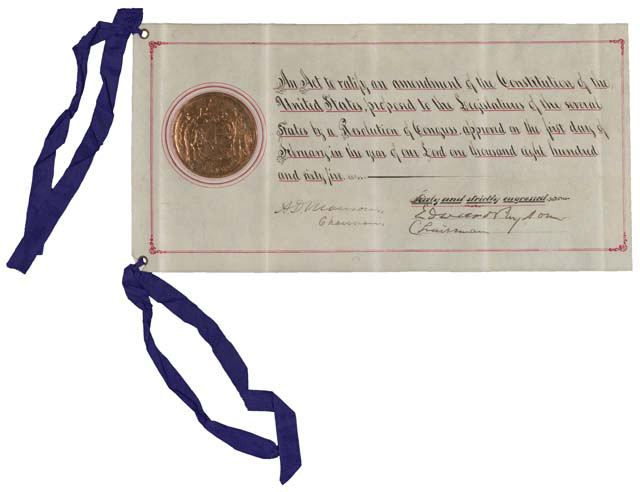Document Type
Text
Contributing Institution
Maine State Archives
Identifier
213552-F003
Exact Creation Date
8-7-1846
Language
English
Location
Kennebec County; Augusta
Disciplines
American Politics | Civil Rights and Discrimination | History | Law | Political History | Political Science | Social History | United States History
Recommended Citation
Maine House of Representatives, "1846 Resolve Relating to Slavery" (1846). 1764-1865. 3.
https://digitalmaine.com/early_aa_history_me/3

Rights Statement
No Copyright - United States. URI: http://rightsstatements.org/vocab/NoC-US/1.0/
The organization that has made the Item available believes that the Item is in the Public Domain under the laws of the United States, but a determination was not made as to its copyright status under the copyright laws of other countries. The Item may not be in the Public Domain under the laws of other countries. Please refer to the organization that has made the Item available for more information.



Description
Resolve presented in August 1846 declaring:
"Whereas, during the administration of this Government, the Slave Power has, for many years, had an almost uninterrupted ascendancy, and has repeatedly violated the Constitution of the United States for the avowed purpose of protecting, extending, and perpetuating the system of Slavery: and
Whereas, we regard American Slavery as a great wrong to the slave, as being at war with all our professions of republicanism, subversive, in its practical operations, of the rights of the Free States, destructive of our best interests and prosperity, unworthy an intelligent and moral people, and, in its influence, tending to destroy the foundations of the American Union, Therefore -
Resolved, that it is the solemn conviction of this Legislature, that the question of its abolition in all places where it exists under our national jurisdiction; and the question, whether we shall resist its farther extension and encroachment by all constitutional means, and deprive it of all its unconstitutional affairs, have become questions paramount in importance to any other before the American People."